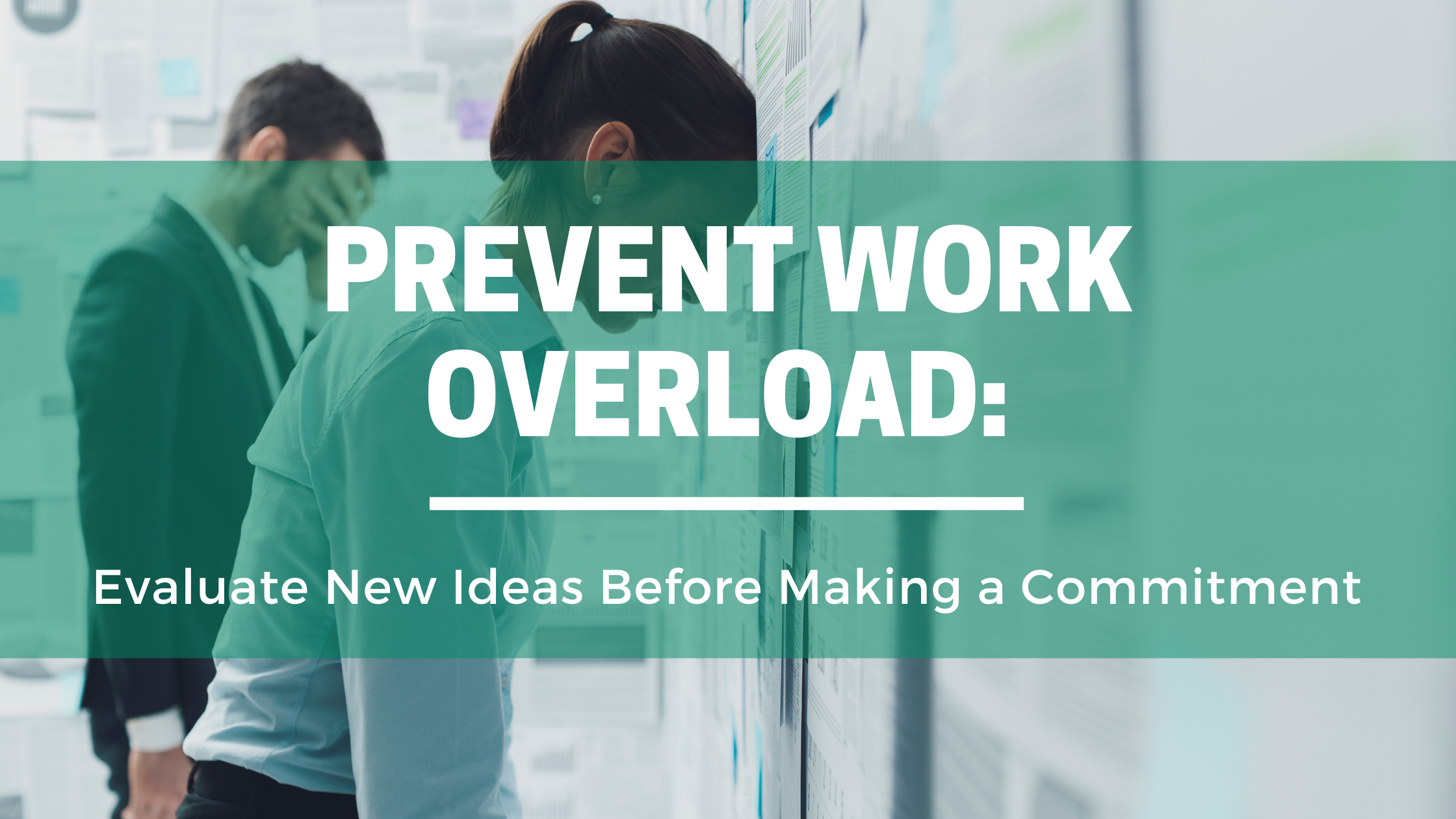If you’re like me, you probably have many ideas in your head. It’s easy to get excited about the next thing that might be a game-changer for your business. But don’t fall victim to shiny object syndrome–don’t say yes to every new idea that pops into your head! Instead, evaluate each idea carefully before making any commitments.
If you’re the kind of person who says yes to everything, you might find yourself in trouble. You could be the most effective and creative employee at your company, but if you’re spread too thin, it won’t matter. You might have tons of great ideas and initiatives that would do wonders for your company, but they’ll never come to fruition if there isn’t enough time.
Benefits of Evaluation
Benefits of evaluation for new ideas include:
- Enhance the chance that the initiative’s goals and objectives are being achieved
- Determine value for money
- Identify what components of an initiative work or do not work and why
- Identify areas that need improvement to provide the best service possible
Just Say No
It’s important to learn how to say no. You are not obligated to take on every new idea or project that comes your way. And it’s important to remember this when someone asks you for help or a favor.
Be assertive, but don’t be rude! You can politely decline by saying something like, “I’m sorry, but I’m already working on too many projects right now,” or, “I wish I could help, but my plate is pretty full at the moment.”
If you’re being ignored when you say no (or if someone keeps asking), then they may not value your time or expertise—and that’s okay! At least now you know where they stand.
If someone is persistent in their request despite your polite refusal, then maybe think about whether or not their idea is worth pursuing. It might be more beneficial for them to find another volunteer who has the time and energy needed rather than wasting both of yours on an unproductive venture.
What About a Good Idea?
Sometimes you have to say “no” to good ideas.
Sometimes, the best strategy is to say “no” to good ideas. If you’re not sure that you can handle an additional project or responsibility, or if it’s something that will take time away from something else important, then it’s probably not worth adding onto your plate. Remember, even if you decide to say yes in the end, there’s no need to feel bad about turning down a proposal at first!
Be sure to prioritize important and urgent projects. If something doesn’t quite fit into the schedule, don’t add it.
What is Your Motivation?
The first step in evaluating new ideas is understanding the motivation behind your decision to accept or reject them. If you don’t know why you’re committing, it’s likely that the underlying reason can be traced back to one of four different types:
- The need for external validation
- The need for control
- The desire for activity (busyness)
- The desire for completion
How Important is The Idea?
Next, ask yourself whether the idea is worth pursuing. If it’s not a good idea, then there will be no reason to commit time and effort to this project. But if it is a good idea, then you need to decide how much time and effort it will require before committing yourself.
Is this worth your time? Do you have something else more important that could be done instead? To help with this question, ask yourself: Is this project worth my efforts? Do I have enough free time to pursue this new idea? Am I willing to take on the risk that comes with pursuing this opportunity?
It’s important to get clear on the purpose of the new opportunity and how it aligns with your goals. It’s also important to get clear on the difference taking action will make in your business and life.
What is the Cost?
Taking time to evaluate new opportunities can save you days and weeks of wasted time and energy. Here are a few things to consider when evaluating for cost:
- What result do you want to achieve with the opportunity and understand the time requirement?
- Is there a financial investment required?
- What are the resources that you will be using for this new idea?
- For example: time, money, focus, and energy.
- How much time does it take to make that commitment?
- Is it worth spending this time on something new when there is so much going on in your current projects or life?
Is It Better to Do It Yourself or Hire Someone Else?
If you are not sure whether to hire someone or do it yourself, then hire someone. You can always fire them later if they don’t work out—but if you decide not to hire someone and try doing the job yourself, there might be consequences in your life (and possibly the lives of others).
Hire someone who knows what they are doing. It sounds obvious, but there are a lot of “experts” that have no clue on how things work and make stupid mistakes as a result. Don’t waste your time with them!
Hire someone who has the right skills for the job. This also sounds obvious, but people often look at other things besides skills when making hiring decisions. For example: “She’s very nice,” or “He’s very experienced.” That doesn’t mean anything if she doesn’t know what she is doing! Look at certifications and references before hiring anyone; even if they have no experience with this particular industry or position yet they could still use their knowledge elsewhere while learning new things at work every day–which will benefit everyone involved in terms of knowledge sharing among team members…but only if this person wants it too! So ask yourself: Is this person interested in working hard enough?
Is Your Business Ready?
Is your business ready for a new project or product offering?
If you’re not sure if your business is ready for a new project or product offering, ask yourself these questions:
- Is my team prepared to handle this new product launch?
- Can we manage the time commitment required for this project?
- Are we able to meet our financial goals and objectives with this new product?
Did you answer no to any of those questions? Then it’s time to step back from what you’re doing. If yes, proceed cautiously into your next stage of growth!
Can You Maintain It long-term?
Once you’ve evaluated the idea, you’ll want to ask yourself two questions:
- Will I be able to maintain this new idea for the long term? If so, how much will it cost me (both financially and emotionally)? Is it worth it?
- Do I have enough time for all of my commitments right now? If not, what needs to go if I want to keep adding things on top of what I already have going on?
Don’t Be Afraid
Don’t fall victim to Shiny Object Syndrome, but also don’t say no because of fear.
Now that you’ve gotten a better understanding of the key concepts of Shiny Object Syndrome, it’s time to talk about how to prevent it. Don’t fear saying no, but also don’t be afraid of saying yes. If an idea looks like it might work, give it a go! Remember, “no” can be a powerful word and sometimes it’s better not to commit to something when there are too many unknowns involved. Once you’ve done this evaluation process and feel confident in your decision (and remember: research is key), then commit fully and enjoy yourself!
Do you feel overwhelmed by your to-do list or overwhelmed by other people’s ideas? Then take a step back and evaluate. Are you saying yes because it gives you a boost of confidence? Or are you saying yes because it will make someone else happy? When making decisions about whether or not something is worth pursuing, we recommend asking yourself the following questions:
Does this idea align with my long-term goals? Is there time for me to devote to this new project or product offering? Can I afford the costs associated with diverting from my original path (time, money)? Do I have enough resources available? Does it make sense for me to do this myself instead of hiring someone else to handle these responsibilities? Would others want this type of thing too?




